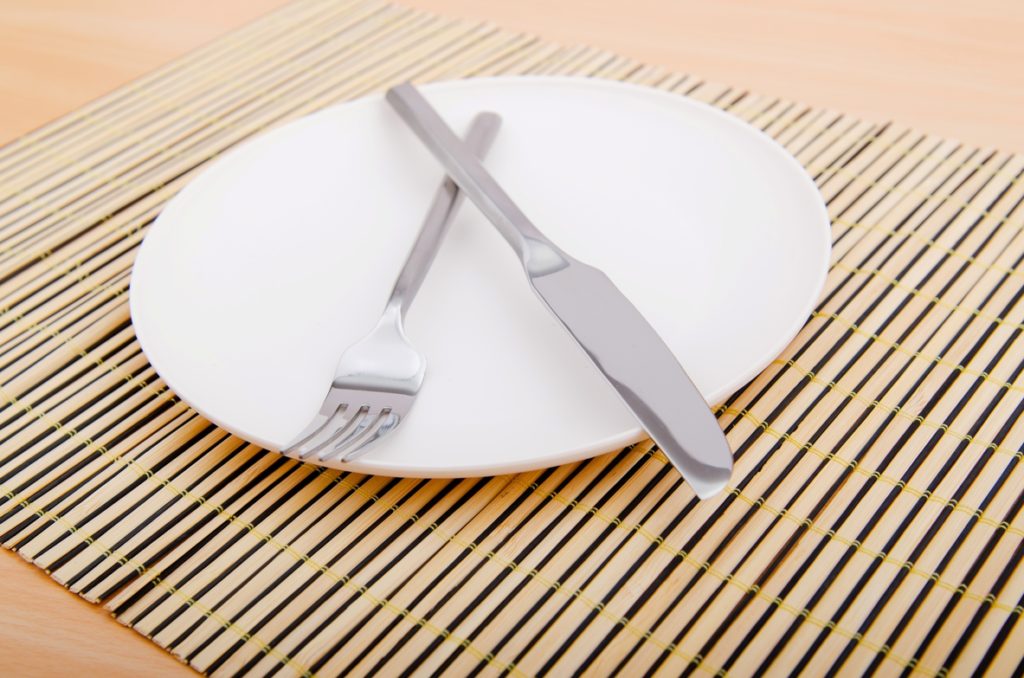The road to significant and prolonged weight loss is simple. Create a calorie deficit by consuming far
It would
The truth is that starving yourself for weight loss doesn’t deliver the kind of results you would expect.
The Unexpected Results Of Starving Yourself For Weight Loss
High Loss in Muscle Mass
Regardless of your diet, your body has grown accustomed to expecting a certain amount of food daily. So, if you refrain from eating, your body perceives that as a period of famine and therefore kicks into survival mode. This means it starts making efforts to conserve fuel while still providing enough energy to keep you alive and functioning for as long as possible without food.
Weirdly enough, the very first step your body takes is to start burning muscle cells and keeping any stored fat safely tucked away to use as the very last resort. The protein released from the burnt muscle cells is then converted to energy, which the body uses to carry out life sustaining functions such as breathing, pumping of blood, cellular repair, and so on. That same energy will also be used to enable the performance of whatever physical activity you engage in while starving yourself.
Since 70% of muscle is water, you’ll also get to lose some weight as every destroyed muscle cell results in the release of water, which will be eventually excreted from the body. That is the weight loss that people on a very low calorie diet experience during the first few days of inadequate eating or starvation.
Decreased Metabolic Rate
Another of the body’s reaction to starvation is to slow down the metabolic rate in a bid to conserve as much energy as possible. How far the metabolic rate drops will depend on several things including a person’s genetics, the duration of the starvation period, and just how severe the starvation is.
The loss of muscle in itself also causes the metabolic rate to drop. This is because muscle is a metabolically active tissue. Therefore, the less the muscle percentage in your body, the slower your metabolism will be.
For someone looking to lose weight, a slow metabolism is the very last thing you would want. A slow metabolism results in the body burning very few calories. So, even if you manage to lose weight it will be at a painfully slow rate.
Reduced Energy
The energy we use to perform everyday activities such as walking, showering, and even something as simple as scratching your forehead comes from the energy produced after the body burns the calories ingested during eating. For someone who is fasting or starving, very few calories go into the body and even fewer are burnt. Therefore, energy levels naturally drop making it difficult to perform normal activities.
The Dangers of Starvation Diets
As you can see, starving yourself for weight loss isn’t a good idea. You not only lose the wrong kind of weight and feel miserable the entire time, but you also gain back all lost weight if not more after resuming your normal eating habits. And, if the starvation period goes on for a long time, it could lead to dangerous effects.
It’s therefore advisable to avoid the temptation of starving yourself and instead create a healthy calorie deficit by combining smart dieting with a rigorous workout plan. Doing so is not only safer than starving yourself, but it’s also the most effective route to permanent weight loss.
15 Foods To Eat Before & After Your Workouts
Some foods play an important role not only as a source of energy for your body, but also for your health and should be factored in as part of your daily requirement. Your body needs a certain kind of nutrition in each stage of an exercise workout. Check out this free download to discover 15 Foods To Eat Before & After Your Workout and why those types of weight loss foods are best at both ends of an exercise session.



